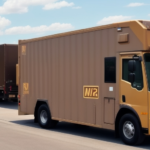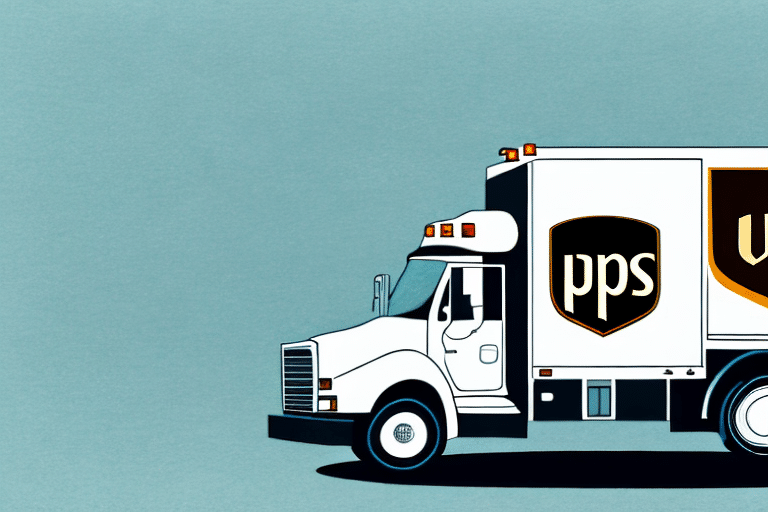Understanding the Impact of Fuel Surcharge on Shipping Costs
Shipping is a vital component of the global economy, connecting businesses across countries and continents. However, the cost of shipping can be complex and subject to various factors, including fuel prices. Fuel surcharges have become an essential part of shipping costs, affecting businesses' bottom lines. As such, it's crucial to understand fuel surcharges and their impact on shipping costs.
What is a Fuel Surcharge and How is it Calculated?
A fuel surcharge is an additional fee added to shipping costs to account for the cost of fuel. It's calculated as a percentage of the total shipping cost, with the percentage varying from company to company. The surcharge is typically based on the average cost of fuel over a specific period, usually a month.
Fuel surcharges can fluctuate based on the price of fuel. If the cost of fuel increases, the surcharge may also increase to cover the additional expense. Some companies may adjust their fuel surcharge on a weekly or even daily basis to reflect changes in fuel prices. It's important to check with your shipping provider to understand how their fuel surcharge is calculated and how it may impact your shipping costs. For more details, visit ShipScience.
The Role of Fuel Prices in Determining a Shipping Company's Costs
Fuel costs play a significant role in determining a shipping company's overall expenses. As fuel prices rise and fall, so do the companies' costs. Due to the volatile nature of fuel prices, some shipping companies introduce fuel surcharges to account for the fluctuation in fuel costs.
Furthermore, the type of fuel used by a shipping company can impact their costs. Companies may opt for cheaper, lower-quality fuels, which can result in higher maintenance costs and lower fuel efficiency. Conversely, higher-quality fuels may come at a higher cost but can lead to better fuel efficiency and lower maintenance costs in the long run.
The History of Fuel Surcharges in the Shipping Industry
Fuel surcharges were introduced during the 1970s oil crisis when oil prices increased dramatically. Shipping companies implemented fuel surcharges to help mitigate rising fuel costs. Since then, surcharges have become a common practice in the shipping industry.
However, fuel surcharges have been a controversial topic in recent years. Some customers argue that the surcharges are excessive and lack transparency, while shipping companies contend that they are necessary to cover fluctuating fuel costs. In response to criticism, some companies have started to include more detailed information about fuel surcharges in their contracts and invoices to increase transparency and avoid disputes.
How Global Events and Market Fluctuations Affect Fuel Surcharges
Fuel surcharges are influenced by global events and market fluctuations. Since fuel prices are directly tied to the global oil market, significant changes in oil prices and supply can affect fuel surcharges. For instance, geopolitical tensions in oil-producing countries, natural disasters, and pandemics like COVID-19 can cause fuel price fluctuations. Shipping companies must stay informed about global events to adjust their fuel surcharges accordingly.
Additionally, the type of fuel used by shipping companies can impact fuel surcharges. Some companies may use alternative fuels, such as liquefied natural gas (LNG) or biofuels, which can experience different price fluctuations compared to traditional fossil fuels. Government regulations and policies on fuel usage and emissions also play a role in shaping fuel surcharges.
It's important for shipping companies to communicate any changes in fuel surcharges to their customers promptly and transparently. This allows customers to plan and budget for shipping costs effectively. Some companies may offer fuel surcharge caps or discounts to provide more stability and predictability in pricing for their customers.
Different Types of Fuel Surcharges and Their Impact on Shipping Rates
There are various types of fuel surcharges, including:
- Bunker Adjustment Factor (BAF): Based on the cost of bunkers (fuel for ships) and adjusted periodically to reflect fuel price changes.
- Fluctuation Surcharge: Accounts for sudden and unexpected changes in fuel prices, typically applied during significant fuel price increases.
- Emergency or Contingency Surcharge: Applied during sudden disruptions in fuel supply, such as natural disasters or political unrest, to cover additional delivery costs.
- Slow-Steaming Surcharge: Applied when ships slow down to reduce fuel consumption and emissions, compensating for longer transit times and additional costs.
Understanding these different types of fuel surcharges helps shippers manage their shipping costs and negotiate more favorable rates with carriers.
How Shipping Companies Pass on Fuel Surcharge Costs to Customers
Shipping companies typically pass on fuel surcharge costs to customers by adding the surcharge as an additional line item on the invoice. The surcharge is often calculated as a percentage of the shipment's total cost. Some companies may also include the fuel surcharge in the base freight rate, making it a fixed part of the shipping cost.
Additionally, some shipping companies adjust their fuel surcharge rates regularly to reflect changes in fuel prices. This means customers may experience fluctuations in the fuel surcharge amount from one shipment to the next, depending on current market conditions. It's essential for customers to stay informed about these changes and incorporate them into their overall shipping budget.
The Impact of Fuel-Efficient Ships on Fuel Surcharges and Shipping Costs
Fuel-efficient ships can significantly impact fuel surcharges and shipping costs. By lowering fuel consumption, these ships can reduce fuel surcharges. However, investing in fuel-efficient ships can be costly upfront, potentially leading to higher base freight rates to cover vessel costs. Despite the initial investment, fuel-efficient ships can provide long-term cost savings.
Besides cost savings, fuel-efficient ships positively impact the environment by emitting fewer greenhouse gases and pollutants, thereby reducing the shipping industry's carbon footprint. Many companies are investing in fuel-efficient ships as part of their sustainability initiatives, which can enhance the industry's reputation and attract environmentally conscious customers.
Strategies for Managing Fuel Surcharge Costs for Businesses
Businesses can manage fuel surcharge costs through several strategies:
- Negotiate Favorable Terms: Secure favorable fuel surcharge terms in shipping contracts, such as caps on surcharges.
- Monitor Fuel Trends: Keep track of fuel cost trends and adjust shipping schedules to take advantage of lower fuel prices.
- Utilize Optimization Software: Employ shipping optimization software to identify the most cost-efficient routes and methods.
- Invest in Fuel-Efficient Equipment: Reduce fuel needs by investing in fuel-efficient vehicles or equipment.
- Consider Alternative Transport Modes: Explore alternative transportation methods like rail or sea, which may offer lower fuel surcharges compared to road transportation.
Comparing Fuel Surcharge Policies Across Different Shipping Companies
It's essential for businesses to compare fuel surcharge policies across different shipping companies to secure the best rates and terms. Analyzing each company's surcharge policies helps businesses understand how fuel surcharges are applied and make informed decisions about which company to partner with.
Key factors to consider when comparing fuel surcharge policies include:
- Frequency of Updates: Some companies update surcharges weekly or daily, while others do so monthly or quarterly, affecting overall shipping costs.
- Discounts and Incentives: Look for companies that offer lower surcharges for fuel-efficient shipping methods or consolidated shipments, providing long-term savings.
Future Trends in Fuel Surcharges and Their Implications for the Shipping Industry
The future of fuel surcharges in the shipping industry is influenced by fuel prices and technological advancements. Shipping companies are expected to continue using fuel surcharges to mitigate rising fuel costs. Additionally, the growing demand for sustainable shipping practices may lead to new types of fuel surcharges designed to promote eco-friendliness in the industry.
Best Practices for Negotiating Shipping Contracts with Favorable Fuel Surcharge Terms
When negotiating shipping contracts, businesses should pursue the following best practices:
- Cap Surcharges: Negotiate caps on fuel surcharges to protect against sudden price hikes.
- Transparent Terms: Ensure contracts clearly outline how fuel surcharges are calculated and adjusted.
- Flexibility: Include clauses that protect the business from unreasonable or abrupt changes in surcharge terms.
The Impact of COVID-19 on Fuel Surcharges and the Global Shipping Industry
The COVID-19 pandemic has significantly impacted fuel surcharges and the global shipping industry. The pandemic led to decreased demand for shipping services, resulting in lower fuel surcharges. However, disruptions to global supply chains and economies have also increased costs and fuel surcharges for some businesses.
The Role of Government Regulations in Shaping the Use of Fuel Surcharges in the Shipping Industry
Government regulations play a crucial role in shaping the use of fuel surcharges in the shipping industry. Regulations such as the International Maritime Organization's (IMO) Emissions Control Area (ECA) standards aim to promote environmentally friendly shipping practices, directly impacting fuel surcharges. Shipping companies must adhere to these regulations and adjust their fuel surcharges accordingly.
Case Studies: Successfully Managing Shipping Costs Amidst Changing Fuel Prices and Surcharges
Several businesses have successfully managed their shipping costs despite fluctuating fuel prices and surcharges. Examples include:
- Implementing Fuel-Efficient Practices: Companies adopting fuel-efficient shipping methods have reduced their fuel surcharges.
- Negotiating Favorable Terms: Businesses negotiating favorable fuel surcharge terms in their contracts have minimized unexpected cost increases.
Overall, fuel surcharges play a critical role in the shipping industry, influencing shipping costs and business profitability. Understanding the factors that affect fuel surcharges and implementing effective management strategies are essential for businesses to control their shipping expenses.








